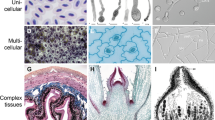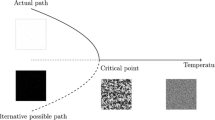Conclusion
In a review of the cell biology and heredity studies of 1900–1910, Bernardino Fantini argues that the choice of an experimental subject or organism was crucial in opening up new discoveries and new theories for specific fields of research.69 Thinking on a broader level, Bütschli expressed a similar view when he stated that an understanding of the true nature and structure of the “elementary organism” was crucial to the whole of biology. In this article we have traced the impact of Bütschli's unicellular model of protozoa up to the general acceptance of the eukaryotic cell as nature's primary organism. We have also seen that Bütschli's vision in the Studien gave birth to Protistenforschung and Zellforschung, sister sciences whose task it was to further and integrate knowledge of the living cell. Of necessity, we have confined ourselves to German scientific developments. However, our attempt to recapture and define the unity and meaning of a biology of the “cell-microcosm” has given us pause to reconsider the development and nature of Wilhelmian biological science.
Similar content being viewed by others
Author information
Authors and Affiliations
Rights and permissions
About this article
Cite this article
Jacobs, N.X. From unit to unity: Protozoology, cell theory, and the new concept of life. J Hist Biol 22, 215–242 (1989). https://doi.org/10.1007/BF00139513
Issue Date:
DOI: https://doi.org/10.1007/BF00139513




